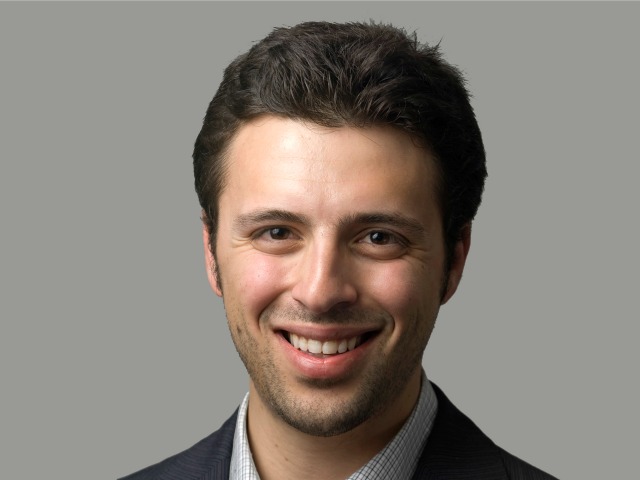President Obama rightly noted yesterday at his super-duper-ultimate-anger press conference that the current scandal engulfing the Veterans Administration – delayed care, cooked books, deaths – is nothing new. “[C]aring for our veterans is not an issue that popped up in recent weeks. Some of the problems with respect to how veterans are able to access the benefits that they’ve earned, that’s not a new issue,” Obama explained.
That’s true. The VA has been problematic for veterans for decades. In 2010, the Los Angeles Times reported:
Some veterans wait up to six months to get their initial VA medical appointment. The typical veteran of the Iraq or Afghanistan wars waits 110 days for a disability claim to be processed, with a few waiting up to a year. For all veterans, the average wait is 161 days. The VA says a ruling on an appeal of a disability rating takes more than 600 days on average. The Iraq and Afghanistan Veterans of America, or IAVA, an advocacy group, says the average delay is 776 days.
But that hasn’t stopped leftists in the press from suggesting that not only is the VA hunky-dory, it is a model for how socialized medicine – including Obamacare – should work. Here are the top 8 commentators and outlets who have pushed that meme (and who are conspicuously silent about the VA’s shortcomings lately):
Paul Krugman. The least qualified Nobel Prizewinner in recent history doesn’t just insult the intelligence of humanity with his economic analysis. He stumps for the VA as the be-all end-all of medical care. Back in 2011, Krugman called the VA a “huge success story” and suggested, “Yes, this is ‘socialized medicine’…But it works, and suggests what it will take to solve the troubles of US health care more broadly.”
There are currently 8.76 million veterans using the Veterans Health Administration. There are 314 million Americans. If we just took the 40 deaths of veterans already confirmed thanks to the Phoenix VA and pro-rated those numbers across the American population, nearly 1,500 Americans would die each year just waiting in line. And that’s a massively low estimate, given that Phoenix is not an outlier, and is merely one of 1,700 veterans hospitals.
Nicholas Kristof. The multiple Pulitzer Prize-winner wrote in 2009:
Take the hospital system run by the Department of Veterans Affairs, the largest integrated health system in the United States. It is fully government run, much more “socialized medicine” than is Canadian health care with its private doctors and hospitals. And the system for veterans is by all accounts one of the best-performing and most cost-effective elements in the American medical establishment.
Right.
Arthur Kellerman, RAND Corporation. Kellerman, who holds the Paul O’Neill-Alcoa Chair in Policy Analysis at RAND, wrote in 2012:
As the nation struggles to confront the twin challenges of rising healthcare costs and uncertain quality, we should be willing to embrace innovative practices wherever they exist, whether they are developed in private, for-profit health care systems or so-called “socialized” ones, like Britain’s NHS or America’s VA.
Unlike his colleagues, Kellerman did acknowledge problems with the VA, but attributed them to lack of funding, despite the highly elevated levels of funding for the VA in recent years.
Uwe Reinhardt, Princeton Professor of Economics. He wrote in 2012 on The New York Times website, “So far I have not received a satisfactory answer from detractors of “socialized medicine” to my question of why we have the V.A. health system when socialized medicine putatively is so evil.”
Phillip Longman, New America Foundation. The senior research fellow with the New American Foundation wrote an entire book about “Why VA Health Care is Better Than Yours.” He explained:
The story of how and why the VHA became the benchmark for quality medicine in the United States suggests that much of what we think we know about health care and medical economics is just wrong…. But when it comes to health care, it’s a government bureaucracy that’s setting the standard for maintaining best practices while reducing costs, and it’s the private sector that’s lagging in quality.
Ezra Klein. The head of Vox.com, back when he was writing non-wonky wonkblogs for the Washington Post, stated that “expanding the Veterans Health Administration to non-veterans” was “one of my favorite ideas.”
American Medical News. The outlet reported in 2007 that the VA had fixed its problems: “What was once the subject of embarrassment and ridicule is now held up as a model for health systems.”
At least the AMN added this proviso: “Investigators have found that veterans are having trouble enrolling in the system and receiving timely care once they do. Veterans, physicians and lawmakers have joined the chorus calling for major reforms to address an antiquated disability assessment process, staffing shortages and bureaucratic barriers to care.” However, the outlet added, “for those who can get it, the level of care can match or exceed most anything veterans could receive in the private sector or elsewhere in the government.”
Businessweek. In 2006, they reported, “a nationwide health system that is run and financed by the federal government provides the best medical care in America….it’s true — if you want to be sure of top-notch care, join the military.”
The starry-eyed coverage of the VA mirrors the addiction of many in the media to government-run health care systems. And it was precisely that starry-eyed view of government health care that led to a blind eye at the VA.
Ben Shapiro is Senior Editor-At-Large of Breitbart News and author of the New York Times bestseller “Bullies: How the Left’s Culture of Fear and Intimidation Silences America” (Threshold Editions, January 8, 2013). He is also Editor-in-Chief of TruthRevolt.org. Follow Ben Shapiro on Twitter @benshapiro.

COMMENTS
Please let us know if you're having issues with commenting.